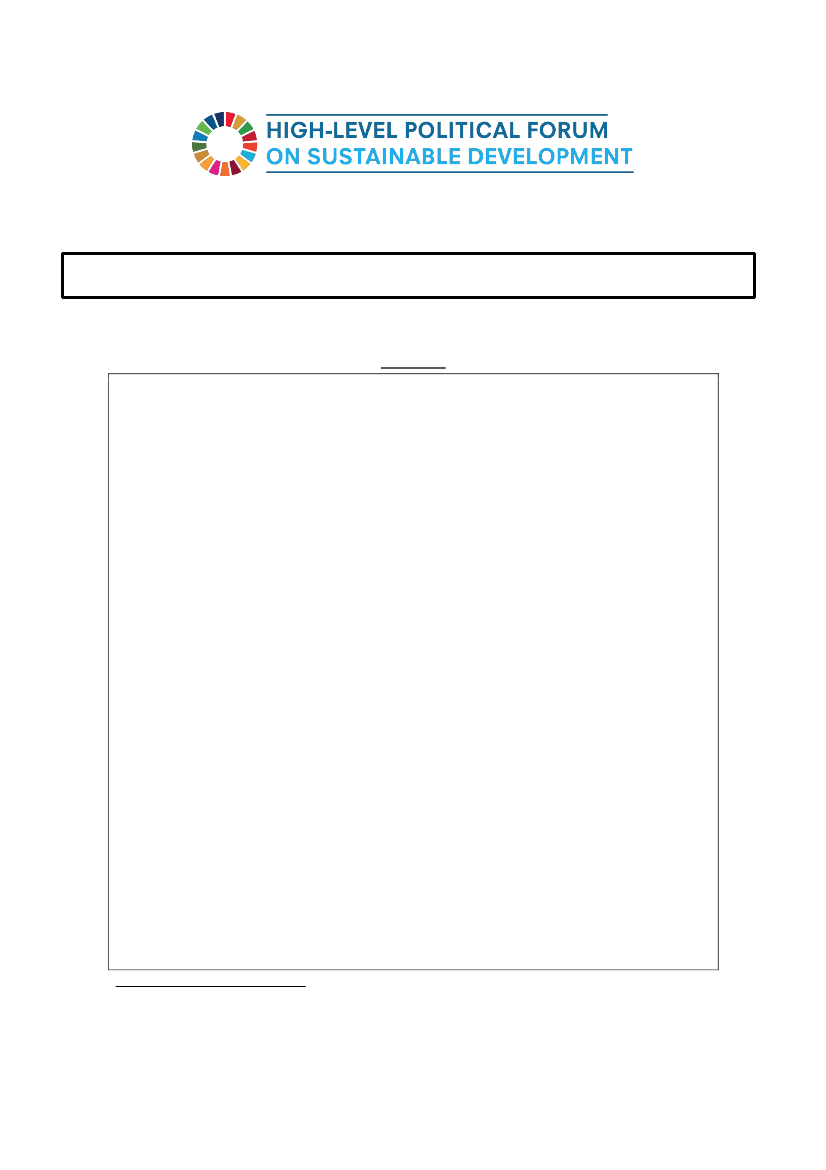
Annotated Programme 3 June 2022
Theme: Building back better from the coronavirus disease (COVID-19) while advancing the
full implementation of the 2030 Agenda for Sustainable Development
Tuesday, 5 July 2022
Tuesday, 5 July 2022, 9:00 AM-10:00 AM, General Assembly Hall
(Overflow
room: Conference Room 4)
Opening
The theme for the 2022 United Nations high-level political forum on sustainable development (HLPF)
and ECOSOC is
“Building
back better from the coronavirus disease (COVID-19) while advancing the
full implementation of the 2030 Agenda for Sustainable Development”.
1
With 2022, we have entered the third year of the COVID-19 pandemic, that has inflicted
unprecedented human suffering. With its combined social, economic and health impact, the pandemic
has outpaced any other major crisis in recent history. The 2022 HLPF will take stock of the impact of
COVID-19 and the other ongoing crises on the implementation of the 2030 Agenda for Sustainable
Development and the achievement of the Sustainable Development Goals (SDGs). The forum will
provide political leadership, guidance and recommendations on how to advance the full
implementation of the 2030 Agenda during the Decade of Action and Delivery, as part of ensuring
sustainable, inclusive and resilient recovery from the pandemic, with leaving no one behind.
The HLPF in 2022 will also conduct an in-depth review of Sustainable Development Goals 4 on quality
education, 5 on gender equality, 14 on life below water, 15 on life on land, and 17 on partnerships for
the Goals. The forum will take into account the different and particular impacts of the COVID-19
pandemic across all SDGs and the integrated, indivisible and interlinked nature of the Goals. The forum
will also launch preparations for the mid-term review of the SDGs and the 2023 SDG Summit
Provisional agenda and documentation (E/HLPF/2022/1)
Chair:
•
H.E. Mr. Collen Vixen Kelapile,
President of Economic and Social Council
Opening remarks:
•
H.E. Mr. Collen Vixen Kelapile,
President of Economic and Social Council
Presentation:
•
H.E. Mr.
Suriya Chindawongse
, Vice President of Economic and Social Council, on messages
from the Coordination Segment and forums under ECOSOC on the theme
1
GA resolution 75/290 B
1